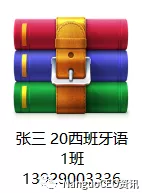
为凸显“强外语,重实践”办学特色,推进“三随”活动,我校将举行“第二届南国‘英语经典’朗诵大赛”(The 2nd SCBC Contest of Classic English Essay Recitation),并将其打造成我校校园文化品牌活动,以读促用,以用促学。
一、比赛组织机构
主办单位:“强化外语语言训练,提升外语运用能力”领导小组、教务处
承办单位:英语语言文化学院、大学英语教学部
协办单位:英文学院团委、学生会,南国CEO大学英语学会
二、比赛时间
2021年10月28日-12月9日
三、参赛选手和比赛分组
参赛选手为全校学生,分为英专组和大英组。
四、比赛流程
大赛分为初赛、复赛、半决赛和决赛。
(一)初赛和复赛
1、比赛时间:
大英组:2021年10月28日至11月16月(大英组初赛)
英专组:2021年10月28日至11月18日(英专组初赛)
2、比赛形式:
全校各班进行班级初选,形式自定,但需以朗诵为主要环节。
①英专组初赛、复赛流程
1、英文学院以班级为单位进行初赛
(1)参赛范围:要求大一、大二、大三各班所有学生必须参加;大四学生自愿报名参赛。
(2)视频要求:从提供的5篇短文中挑选一篇,朗读全文并将朗读录成视频。横向拍摄,不需进行编辑、裁剪等加工处理。参赛视频以“姓名+班级”(如:20商英1李XX、21师范1王XX)方式命名,11月18日下午5:00前把视频交给班干部。
2、班干部把视频发给《综合英语1》、《综合英语3》、《综合商务英语1》、《综合商务英语3》、《高级英语1》或《高级英语3》任课老师。大一、大二、大三任课老师从各班推选3名学生,大四任课老师从各班推选1-2名学生(15人以下参赛推荐1名,16人及以上参赛推荐2名)作为复赛候选人推荐给系主任。视频作为以上课程的作业计入平时成绩,分值为整个课程最终考核成绩的5%。(大四学生不计入平时成绩。)
3、英文学院复赛:
翻译系和商务英语系各聘请3-5名评委;英语系“大一”和“大二、大三、大四”各聘请3-5名评委。各系推选参加半决赛人选:商英系3名、翻译系3名、英语系大一6名、英语系大二4名、英语系大三和大四3名。复赛后未进入决赛的选手均获得《2021英文学院“英语朗读竞赛‘优美朗读者’”》证书。各系在12月2日前把复赛和决赛选手名单上交学院。
②大英组初赛、复赛流程
大英组初赛流程:
大英组以本学期教学授课班级为单位进行初赛
1、大学一年级、二年级学生,由各班《大学英语》、《第二外语:英语》、《综合英语》、《通用英语》课程的任课老师组织比赛,在每一个班中选拔出1名学生进入复赛 。
2、大学三年学生以大学英语跨文化交际课程班级为单位,由课程任课老师组织比赛进行选拔,每班选出1名学生进入复赛。
3、没有英语类课程的非英语专业班级学生在主办方规定的朗读篇章中选择一篇英语短文进行朗读录像,录像时长为3分钟内,朗读内容不可重复。视频质量要求图像与声音清晰,无杂音,横向拍摄,视频需为一个完整的朗读视频文件,不得进行编辑、裁剪等加工处理;视频格式为mp4/ avi/ wmv,视频大小要求:不小于50M,不超过500M。请有意参赛的学生把朗读视频与所朗读的英文文本放于一个文件夹(文件夹以“初赛参赛选手姓名+年级+班级+电话号码”命名),于11月10日下午5:00前提交到大学英语教学部办公室G208唐王子老师处(提交时请确认视频能正常播放)。大学英语教学部将组织评委于11月16日前,按照班级数量选出相应数量的复赛选手。

4.凡参与比赛的大英组学生,均可在《大学英语》、《第二外语:英语》、《综合英语》或跨文化交际课程中添加2分课程平时成绩分数,若进入决赛,则可在已有的2分课程平时成绩分数的基础上再加2分。
大英组复赛流程:
1、比赛时间:
11月16日至11月21日
2、比赛形式:
视频网选
各复赛选手在比赛规定的朗读篇章中选择一篇进行朗读录像,录像时长为3分钟内,不可重复朗读,视频质量要求图像与声音清晰,无杂音,横向拍摄,视频需为一个完整的朗读视频文件,不得进行编辑、裁剪等加工处理;视频格式为mp4/ avi/ wmv,视频大小要求:不小于50M,不超过500M。请选手把朗读视频与所朗读的英文文本放于一个文件夹(文件夹以“复赛参赛选手姓名+年级+班级+电话号码”命名),于11月16日下午5:00前提交到大学英语教学部办公室G208唐王子老师处(视频提交时请确认视频能正常播放)。
11月21日前,大学英语教学部选派7位老师担任评委,在大英组中复赛作品中评选出20名选手参加决赛。
3、决赛名单:
英专组、大英组通过初赛和复赛确定各自决赛选手名单。大英组决赛名单将于11月21日通过多个微信公众号、学校网站进行公布,并同时公布决赛“随机片段朗读”来源的10篇朗诵材料。
(二)(半)决赛
比赛时间:
大英组:12月2日下午2:00---4:00
英专组:12月9日下午2:00---4:30
比赛地点:
国际会议厅
评委会组成:
英专组:领导与嘉宾若干位、英语语言文化学院7名教师。
大英组:领导与嘉宾若干位、大学英语教学部7名教师、双语老师若干位。
决赛现场主持:
英语语言文化学院与大学英语教学部各选派2名学生分别在两场决赛中担任主持。
决赛工作人员:
计分组、计时员、催场人员、现场监控人员,由南国CEO大学英语学会、英文学院团总支学生会选派。
礼仪员:
由学校或学院礼仪队选派。
决赛报道与拍照:
学校宣传科、南国CEO大学英语学会、英文学院团总支学生会。
决赛录像:
由学校教育技术中心负责。
比赛流程:
英专组半决赛、决赛流程
1、半决赛
朗诵材料与初赛材料同,自选一篇。选手抽签决定出场顺序。
英专组选6名选手进入决赛,并授予其《英文学院2021英语朗读竞赛》一等奖。
未进入决赛的选手中得分最高的4位获得校级优秀奖和《2021英文学院英语朗读竞赛》二等奖,其他9位选手获得《2021英文学院英语朗读竞赛》三等奖。
2、决赛
决赛选手在公布决赛名单后即抽签决定出场顺序。朗诵材料为从10段节选中抽取一篇,即每位选手上台前约十分钟抽签决定朗读的短文片段(第一名选手在半决赛结束时抽签,第二名选手在此5分钟后抽签,第三名选手在决赛开始时抽签,第四名选手在第二名选手开始朗诵时抽签,以此类推)。选手依照抽签顺序出场朗诵。评委评选出校级一等奖1名、二等奖2名、三等奖3名。
大英组决赛流程
决赛阶段分为两个环节,第一环节为规定朗诵环节,第二环节为随机片段朗诵环节。
(1)规定朗诵
比赛主办方将于比赛决赛名单公布时同时公布决赛选手可选择的比赛朗诵材料,共10篇。选手在公布指定的朗诵材料中选择其中一篇短文进行练习,做好现场朗诵的准备。决赛现场,选手需现场真人朗诵所选的材料,不可提前进行录音,但可设计自己的方式来完成短文的朗诵。朗诵时间为3—4分钟。
此环节,选手以抽签决定出场顺序,并以出场顺序逐一进行英语朗诵展示。评委将对选手的表现现场打分。
(2)随机片段朗诵
决赛选手在公布决赛名单时可获得主办方准备的15个片段,做好朗诵的准备。比赛现场,主办方随机挑选其中的10个片段,并对其进行编码。进入此环节的选手将依照出场顺序,在台上选取一个号,抽取一个文段,随即对文段进行朗诵。评委将对这一环节的选手表现进行现场打分,根据得分,评选出大赛的一、二、三等奖。
五、评分制与评分标准
评分制为百分制。每位选手得分去掉一个最高分、一个最低分,平均得分为最后得分。
1、语音语调
语音语调:语音准确,语调优美,声音洪亮。
语速节奏:语速恰当适度,节奏抑扬顿挫、表达自然流畅。
2、感情表达
感情饱满真挚,表达声情并茂,能通过情感的变化反映朗诵内容的内涵。具有较强的感染力、能使听者产生共鸣。
3、姿态
衣着庄重得体,精神充沛饱满,手势表达力强,姿态优雅大方。
六、朗诵材料选择
朗诵材料均由承办方提供。朗诵材料应该是政治方向正确,内容积极向上、形式广泛多样,经久流传的经典名篇。本次大赛的朗诵材料分别由英语语言文化学院和大学英语教学部向各自组织的参赛选手提供。
七、校级奖项设置
此项比赛设一等奖、二等奖、三等奖、优秀奖,获奖者将获得学校颁发的《广东外语外贸大学南国商学院第二届南国“英语经典”朗诵大赛一等奖、二等奖、三等奖、优秀奖》荣誉证书与奖金,具体如下:
英专组:
一等奖1名,奖金500元
二等奖2名,奖金400元/名
三等奖4名,奖金300元/名
优秀奖5名,奖金100元/名
大英组:
一等奖1名,奖金500元
二等奖3名,奖金400元/名
三等奖6名,奖金300元/名
优秀奖10名,奖金100元/名
八、比赛宣传
(一)比赛初赛、复赛、决赛宣传事宜均由“强化外语语言训练,提升外语运用能力”领导小组、南国CEO大学英语学会、英文学院团总支学生会负责。
(二)比赛后期宣传邀请学校宣传科配合。
本届比赛精选朗诵篇章5篇
初赛、复赛
The 2nd Contest of English Essay Recitation
(for Preliminary and Semi-final 2021)
01
1. A Little Bit More (205 words)
Today is an excellent day for small improvements. Whatever is working for you, find a way to improve it just a little. There’s no need to make a huge change, just a small one, something you can do right now.
If you called just one additional customer each day, over the course of the next month you would talk to about 20 new people. If you learned just one more new word each day, in the next year you would increase your vocabulary by more than 300 words.
Small improvements can add up over time into big accomplishments. Look around you. Consider the work you do each day. Think about how you could do it just a little bit better.
In a marathon race, each step the winner takes is just a little bit longer and a little bit faster than each stride taken by the 100th place finisher. Yet over the course of the race, that small difference adds up in a big way.
Do just a little bit more today, and tomorrow too, and each day after that. Anyone can make just a small improvement, and that can make a big, big difference.
2. A Better Tomorrow (231 words)
---by Herbert Clark Hoover
People often wonder why historians go to so much trouble to preserve millions of books, documents and records.
Why do we have libraries? What good are these documents and history books? Why do we record and save the actions of men, the negotiations of government officials and the events during wars?
We do it because, sometimes, the voice of experience can cause us to stop, look and listen. Sometimes, past records, when understood in the right way, can help us decide what to do and what not to do. If we are ever to create lasting peace, we must seek its origins in human experience and in the records of human history.
From the stories of courage and devotion of men and women, we create the inspirations of youth. History records [rɪˈkɔːd] the suffering, the self-denial, the devotion, and the heroic deeds of people in the past. These records [ˈrekərd] can help us when we are confused and when we really need peace.
The main purpose of history is to create a better world. History gives a warning to those who promote war, and inspiration to those who seek peace.
In short, history helps us learn. Yesterday’s records can keep us from repeating yesterday’s mistakes. And from the pieces of mosaic assembled by historians come the great murals which represent the progress of mankind.
3. You are Absolutely Unique (253 words)
Enjoy that uniqueness. You do not have to pretend in order to seem more like someone else. You do not have to lie to hide the parts of you that are not like what you see in anyone else.
You were meant to be different. Nowhere, in all of history, will the same things be going on in anyone’s mind, soul and spirit as are going on in yours right now.
If you did not exist, there would be a hole in creation, a gap in history, and something missing from the plan for humankind. Treasure your uniqueness. It is a gift given only to you. Enjoy it and share it!
No one can reach out to others in the same way that you can. No one can speak your words. No one can convey your meanings. No one can comfort others with your kind of comfort. No one can bring your kind of understanding to another person. No one can be cheerful and light—hearted and joyous in your way. No one can smile your smile. No one else can bring the whole unique impact of you to another human being.
Share your uniqueness. Let it flow out freely among your family and friends, and the people you meet in the rush and clutter of living, wherever you are. That gift of yourself was given to you to enjoy and share.
See it! Receive it! Let it move you and inspire you! You are unique!
4. Youth (251 words)
--- by Samuel Ullman
Youth is not a time of life; it is a state of mind; it is not a matter of rosy cheeks, red lips and supple knees; it is a matter of the will, a quality of the imagination, a vigor of the emotions; it is the freshness of the deep springs of life.
Youth means a temperamental predominance of courage over timidity, of the appetite for adventure over the love of ease. This often exists in a man of 60 more than a boy of 20. Nobody grows old merely by a number of years. We grow old by deserting our ideals.
Years may wrinkle the skin, but to give up enthusiasm wrinkles the soul. Worry, fear, self-distrust bows the heart and turns the spirit back to dust.
Whether 60 or 16, there is in every human being’s heart the lure of wonders, the unfailing appetite for what’s next and the joy of the game of living. In the center of your heart and my heart, there is a wireless station; so long as it receives messages of beauty, hope, courage and power from man and from the infinite, so long as you are young.
When your aerials are down, and your spirit is covered with snows of cynicism and the ice of pessimism, then you’ve grown old, even at 20; but as long as your aerials are up, to catch waves of optimism, there’s hope you may die young at 80.
5. Ambition (Excerpt, 304 words)
--- by Jesoph Epstein
There is a strong view that holds that success is a myth, and ambition therefore a sham. Does this mean that success does not really exist? That achievement is at bottom empty? That the efforts of men and women are of no significance alongside the force of movements and events now not all success, obviously, is worth esteeming, nor all ambition worth cultivating. Which are and which are not is something one soon enough learns on one’s own. But even the most cynical secretly admit that success exists; that achievement counts for a great deal; and that the true myth is that the actions of men and women are useless. To believe otherwise is to take on a point of view that is likely to be deranging. It is, in its implications, to remove all motives for competence, interest in attainment, and regard for posterity.
We do not choose to be born. We do not choose our parents. We do not choose our historical epoch, the country of our birth, or the immediate circumstances of our upbringing. We do not, most of us, choose to die; nor do we choose the time or conditions of our death. But within all this realm of choicelessness, we do choose how we shall live: courageously or in cowardice, honorably or dishonorably, with purpose or in drift. We decide what is important and what is trivial in life. We decide that what makes us significant is either what we do or what we refuse to do. But no matter how indifferent the universe may be to our choices and decisions, these choices and decisions are ours to make. We decide. We choose. And as we decide and choose, so are our lives formed. In the end, forming our own destiny is what ambition is about.


